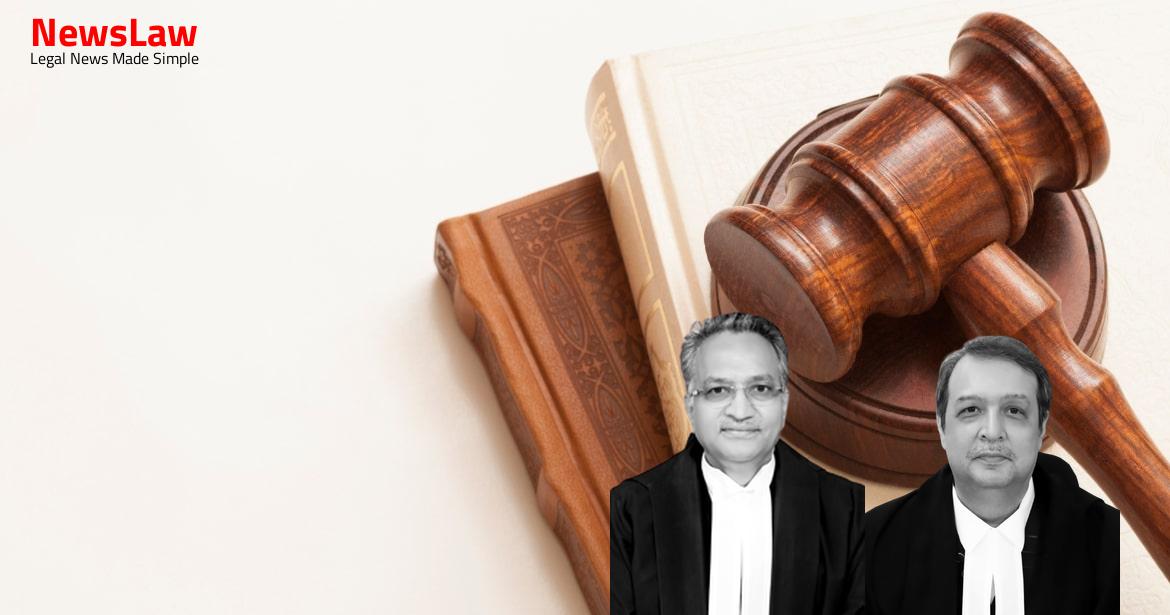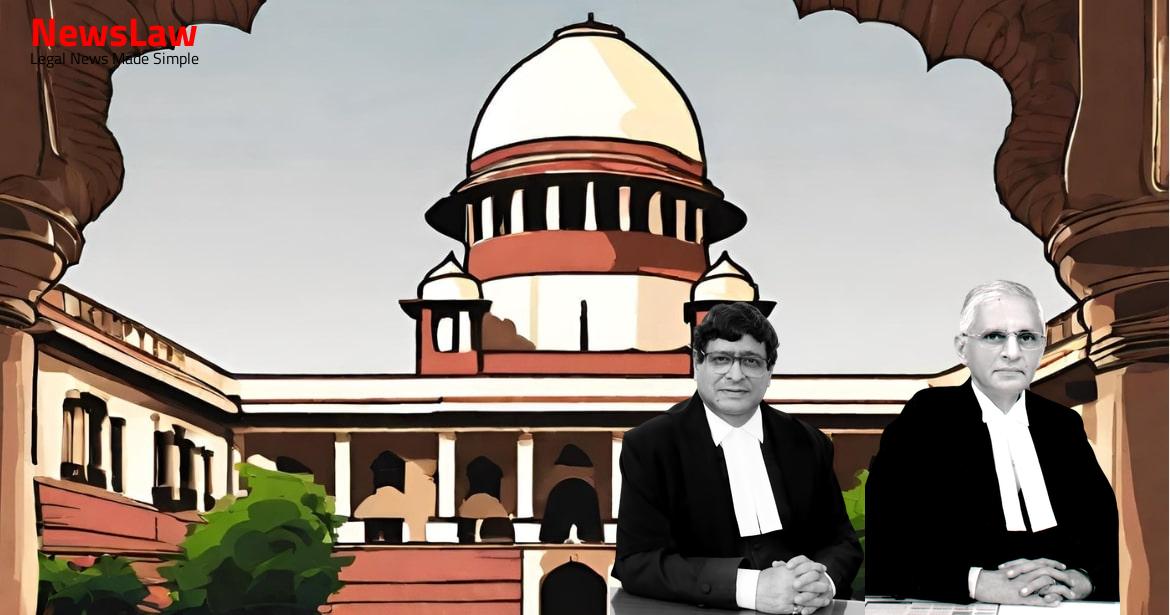Explore the legal intricacies of a recent Court judgment regarding the grant of bail to a co-accused in a murder case. The Court’s analysis delves into the complexities of balancing the right to bail with the severity of the crime, emphasizing the importance of thorough legal reasoning in such decisions. Stay tuned to understand the nuances of the legal system in action.
Facts
- The appellant lodged the First Information Report on 10.07.2019 alleging the attack and death of his son Danish by 7 persons.
- Two eye-witnesses, Nisar and Jalil, were named in the incident.
- Imran was arrested on 11.07.2019, while Fahim’s bail application was allowed on 25.02.2020.
- The respondent No 2 had two bail applications – the first one dismissed for non-prosecution and the second one granted on the basis of parity with other accused.
- The High Court granted bail to respondent No 2 on 03.12.2020, citing bail granted to identically placed co-accused.
- The appellant challenges this decision, citing disapproval of a similar bail order by the Supreme Court in a previous case.
- The High Court considered the application on behalf of the respondent No 2 for bail.
- The co-accused had already been granted bail, which influenced the High Court’s decision.
- The High Court ordered the release of the respondent No 2 on bail with certain conditions.
Also Read: Ensuring Maintenance Rights: Court’s Legal Analysis
Arguments
- Applicant argued that he has been falsely implicated in the present case with general allegations against all accused persons.
- Co-accused have been granted bail by co-ordinate Benches of the Court, and applicant’s case stands on identical footing as those co-accused.
- Applicant has been in custody since 02.09.2019 with no prior criminal history, and no specific role assigned in the incident.
- Story of the prosecution seems false scientifically, as 7 accused persons could not have inflicted injuries on the victim with 7 knives simultaneously.
- High Court granted bail to respondent No 2 based on orders favoring co-accused, which were later set aside by the Court.
- State supported appellant’s submissions, highlighting the brutal nature of the crime where 7 persons attacked the victim with sharp weapons in broad daylight.
- Considering that identically placed co-accused have been granted bail, the Court decided to release the applicant on bail.
- Learned counsel for the appellant argues that the statement of the present appellant has already been completed in the trial without any allegations of tampering with witnesses.
- The impugned order granting bail to respondent No.2 is defended by learned counsel as not requiring interference.
- In rejoinder, appellant’s counsel highlights that the eye-witnesses Nasir and Jalil are yet to be examined, and in light of the nature of accusations and previous court orders, the impugned order should be set aside.
Also Read: Legal Authority and Res Judicata in Representation Matter
Analysis
- The High Court granted bail to the respondent No 2 solely because the co-accused had already been granted bail, without considering other aspects of the case.
- The order granting bail to the co-accused earlier was strongly disapproved by the Court.
- The First Information Report was registered within four hours of the incident.
- The charge-sheet has been submitted after completion of the investigation.
- The High Court’s order dated 03.12.2020 cannot be approved from any standpoint.
- The respondent No 2 was in custody since 02.09.2019, had no criminal history, and trial was expected to take time.
- The High Court failed to provide reasons while granting bail, which is a crucial requirement as emphasized in previous Court judgments.
- The brutal murder of the appellant’s son with multiple grievous injuries was a key consideration that should not have been overlooked.
- The High Court’s cursory manner in granting bail without considering the severity of the crime or the specific details of the case was a significant oversight.
- The High Court granted bail after considering submissions and the ‘larger mandate of Article 21’
- Reference made to the recent decision in Mahipal vs Rajesh Kumar case
- The court has not made any judgment on the merits of the case and the observations made will not be prejudicial to the parties.
- The fact that respondent No. 2 has been in custody since 02.09.2019 and has no negative antecedents does not automatically warrant bail considering the seriousness of the crime.
- The Investigating Officer noted that the respondent surrendered late in the case, after others were already arrested or absconding.
- Respondent No. 2 was named as one of the assailants in the FIR, making the prosecution’s case prima facie credible.
- The impugned bail order was set aside based on the aforementioned reasons.
- The judgement of 15.03.2021 disapproved the bail granted to a co-accused and directed surrender.
Also Read: Court’s Legal Analysis on Filing Counter-Claim
Decision
- Appeal allowed; impugned order set aside with the requirement for respondent No 2 to surrender immediately.
- All pending applications disposed of.
- Impugned judgment and order of the High Court dated 25 February 2020 set aside.
- Respondent No 2 allowed to apply for bail afresh after surrendering and at an appropriate stage.
- If respondent No 2 applies for bail afresh after surrendering, the application will be considered on its own merits.
- Order granting bail was passed on 03.12.2020; matter taken up for consideration on 12.07.2021.
Case Title: AMINUDDIN Vs. THE STATE OF UTTAR PRADESH (2022 INSC 1020)
Case Number: Crl.A. No.-001669-001669 / 2022



